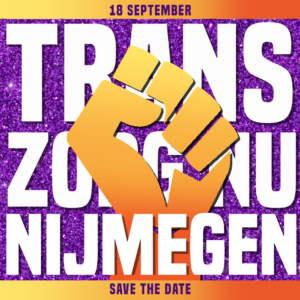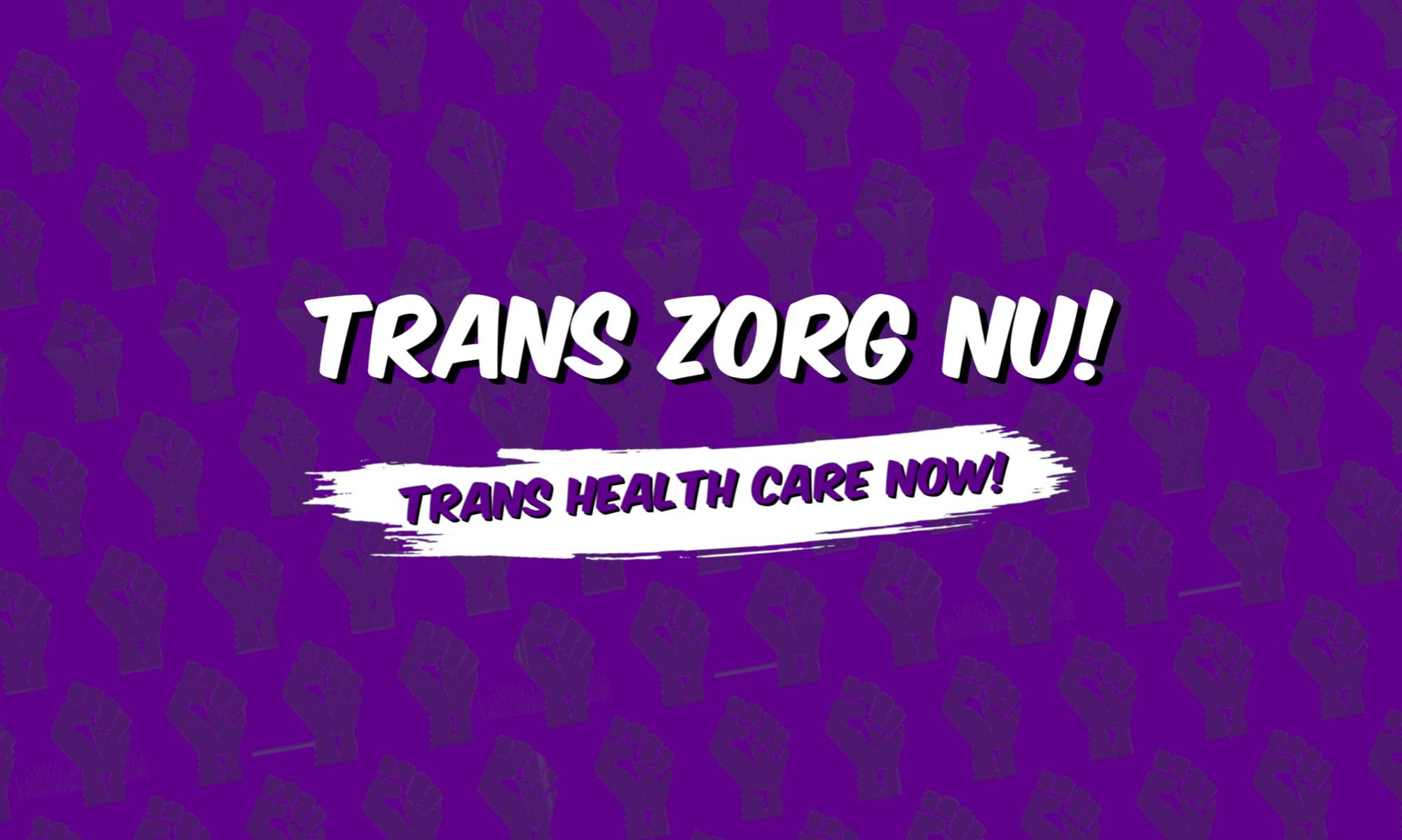On Sunday September 18, Trans Zorg Nu Nijmegen will organize a demonstration in Nijmegen.
Trans Zorg Nu Nijmegen demonstrates for self-determination. People who need transition care in the Netherlands have to deal with a waiting list of 3 years, patronizing treatment protocols and gatekeepers. One solution lies at the root of all these problems: self-determination.
Being transgender is beautiful, and transition a positive step that brings joy for trans people. It is part of being yourself and taking control of your own life. This makes it even more painful and unfair that trans people currently do not have control over their own care and have to wait for years before they can continue their transition. Trans Zorg Nu Nijmegen wants to address the importance of self-determination and propose concrete improvements.
We do this from intersectionality – the awareness that trans people who also have other minority experiences experience even greater barriers. We keep a broad view, because self-determination is important in all branches of care and the struggle for self-determination is one that we share with many marginalized people. As a community we want to celebrate our existence, show our strength and share our dream of the care we deserve.
With our statement, we present a list of concrete steps that gender teams can take right now to improve care for trans people and get closer to the goal of full self-determination:
1. Transition without diagnosis and with full reimbursement is the goal. A good first step in that direction: replace the psychiatric diagnosis ‘gender dysphoria’ from the DSM5 with the somatic-physical diagnosis ‘gender incongruence’ from ICD11. This diagnosis has no pathological focus on suffering or stigmatizing psychiatric status. Instead, it focuses on the enduring belief of gender identity. Make clear agreements with health insurers to maintain full coverage. The National Health Care Institute, the advisory body of VWS, already advised in 2021 that health insurers should reimburse the same care for both diagnoses.
2. Ensure that the steps people take outside the gender teams are safe. Provide information to GPs who wish to prescribe hormones or puberty blockers, whether their patients are on the waiting list or not. Provide people who feel they have no other option than to self-medicate during the waiting list with access to blood tests and any other physical examination to ensure their safety.
3. Take non-binary identities seriously and let people determine their own transition trajectory, including options such as choosing for surgery only, without taking hormones. Make sure that a non-binary transition wish does not lead to a delay in treatment.
4. Give young people the opportunity to start taking puberty inhibitors as soon as possible after registration. During the time that young people are on the waiting list and are in the diagnosis process, irreversible changes to their bodies and voices can take place, which can be safely and reversibly prevented with puberty inhibitors.
5. Do not limit access to surgery based on other factors that correlate with health, such as BMI or smoking. The use of BMI is not scientifically substantiated. In addition, this is necessary care, for which no barriers should be raised that we do not see in other life-saving operations. If there are really demonstrable health problems, discuss the risks with the care recipient and give them control in the decision whether the quality of life added by surgery outweighs the risks.
6. Do not create additional barriers to care for neuroatypical people (autism, add, etc) or people who struggle with their mental health. Do not demand that care recipients first work on their depression or first enter a counseling program for autism. Transition is often needed for other personal development. Let the care recipient decide for themself which care question is most urgent.
